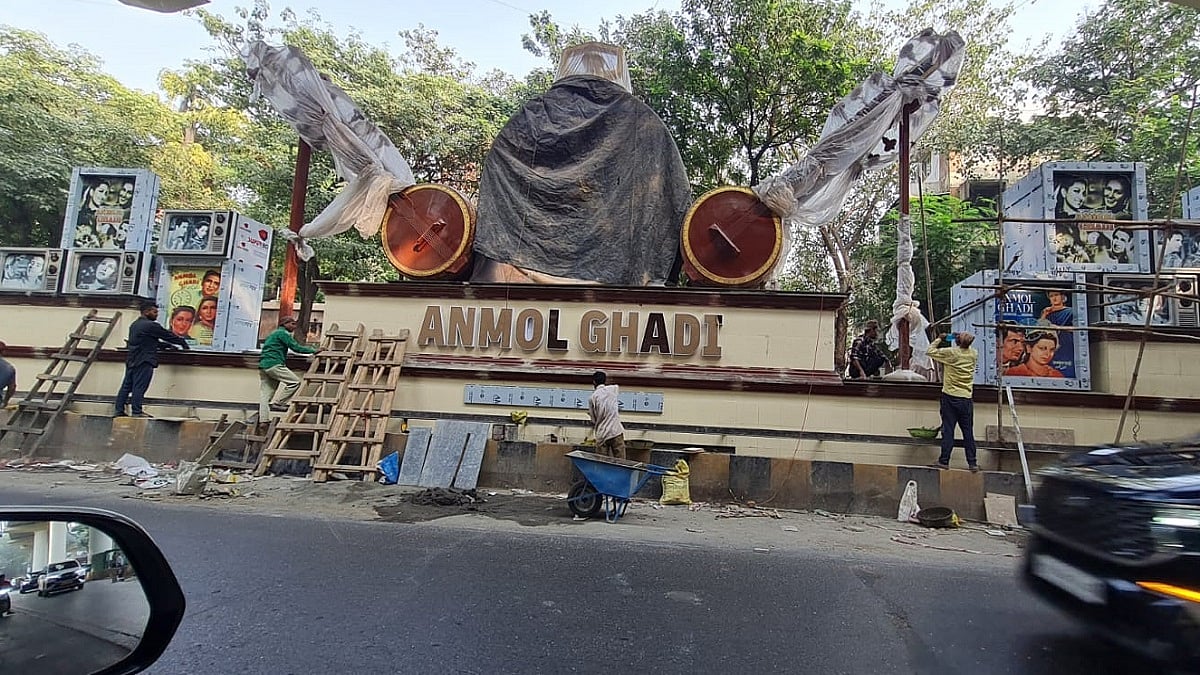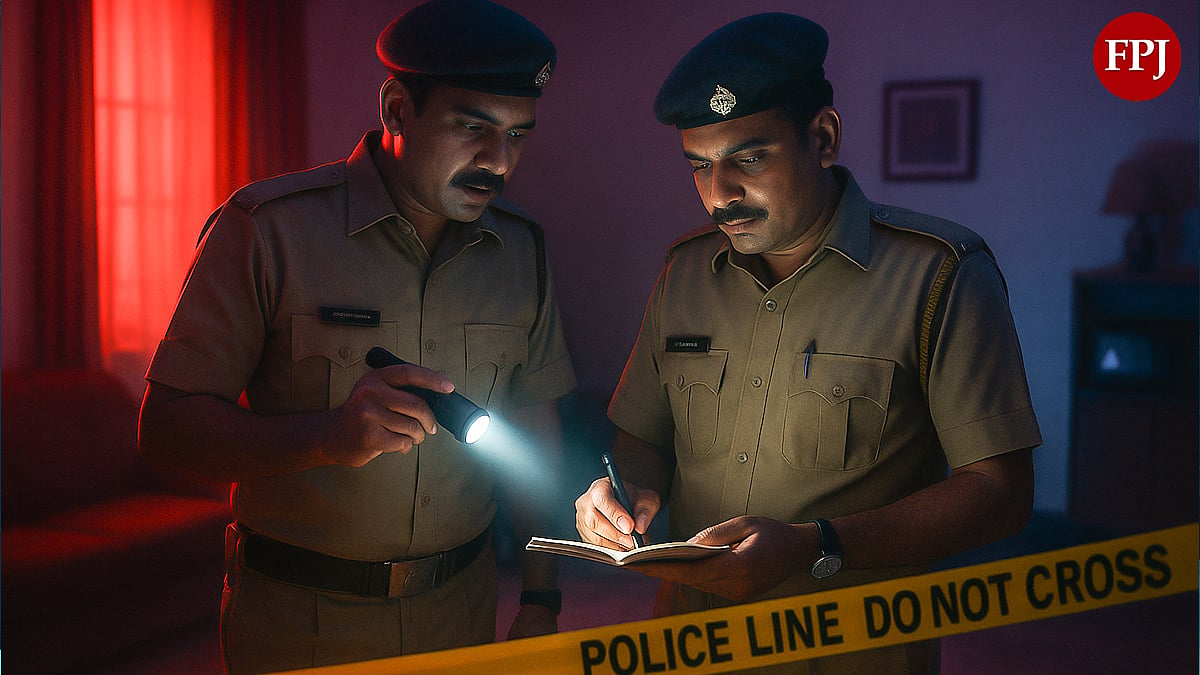INDIA’s third conclave in Mumbai will be very crucial. It not only has to reconfirm its resolve to fight together to defeat the Bharatiya Janata Party government led by Narendra Modi, but also has to give the world a message that in their fight to save democracy, they are not guided by pettiness. Managing the affairs of 26 ambitious political parties and their Himalayan-sized egos is a Herculean task and requires patience, perseverance and a promise to rise above narrow political gains. A few politcal leaders and parties have to be prepared to sacrifice more to accommodate and adjust others for the sake of the professed unity.
In this endeavour, senior leaders of the group have an important role to play. People like Sharad Pawar who are in the autumn of their career have to work round the clock to keep the flock together, and to achieve that he and some more senior leaders have to draw a bigger line for others. Can they do it, is the million dollar question. This question is the fundamental one for the Opposition formation. In the past whenever a fragmented Opposition got together they always had one or two towering personalities who could act as selfless guardians, and others were left with no option but to listen and surrender to their diktats. In 1975 when Indira Gandhi was hell-bent on dismantling democracy and decided to impose the Emergency, then Opposition leaders discovered a moral force like Jay Prakash Narayan, popularly known as JP. JP was not only the hero of the Quit India movement in 1942 but also, in post-Independence India, emerged as someone who did not hanker for power, a selfless hermit if I may say so.
Similarly in 1967, Ram Manohar Lohia, despite leading a small party, commanded huge respect as an original thinker, who created an alternate politcal philosophy vis-a-vis Nehruvian orthodoxy. Lohia was the originator of the idea of anti-Congressism and OBC politics. JP and Lohia were together at one point of time but later drifted apart on the question of what should be the role of the Opposition in independent india. JP was of the opinion that the Opposition should help Nehru in the process of nation-building, and that an infant democracy could not afford a conflict between government and Opposition. But Lohia believed that to make the government accountable, the Opposition should be unsparing. JP took sanyas from politics and retreated into his own spiritual pursuits. In 1967 and 1977 if the Opposition succeeded in humbling the powerful Congress regimes, it was because of them.
In the late 1980s, the exit of VP Singh from the Rajiv Gandhi government created a momentum which led to the defeat of the Congress in 1989 but the role played by Devi Lal and Harkishen Singh Surjit proved very critical. It was a miracle that politcal adversaries who were ideologically poles apart, like CPM and BJP, decided to unite under one umbrella to defeat the might of the Congress. VP Singh’s aura too played a vital part. In the present context there is no moral force like JP, neither a theoretician like Lohia and nor are there hardcore politcal leaders like Devi Lal and Surjit.
There is no denying the fact that there are leaders like Sharad Pawar, Nitish Kumar, Mamta Banerjee and KCR but none of them carry an all-India acceptability even among political leaders. There is an issue of trust deficit too. Though all of them have their own politcal fiefdom and don’t cross each other, yet it can’t be said that any one of them commands the kind of respect that JP or Lohia used to. One of the biggest reasons for lack of trust between them is that all of them are in the race to become the leader of the group and have an unsaid desire to be the prime minister if the occasion arises. The unconfirmed news about Nitish being unhappy for not being designated as convenor in the Bengaluru conclave has some truth though he himself denied it. Nitish is a serious contender for the leadership position.
Mamta is unpredictable, temperamental and mercurial. She is a great leader but she is not a team player. KCR is equally a maverick. Though he has an all-India ambition — he wants to be prime minister — he has serious differences with the Congress. He has also tried to help Akhilesh Yadav and Arvind Kejriwal. But he does not have the stature to command the respect of all. Sharad Pawar would have played a stellar role in the battle against Modi in the 2014 elections but surprisingly he has proved to be a big disappointment. One can argue that Pawar was dealing with his own inter-party problems, with his party broken by the BJP, but the fact is that though he should be credited for creating the united Maha Vikas Aghadi platform, he did not take any initiative to unite the Opposition parties. It was nothing less than a miracle,bringing together the Congress, the NCP and the Shiv Sena in the MVA. After the Maharashtra model it was expected that Pawar would get all the Opposition leaders together nationally as well, but he did not make any effort. Now after the division of the NCP, Pawar’s stature has diminished and he has turned into a tragic hero. He has further complicated the matter and lost the faith of Opposition leaders by going against the Opposition narrative in the Gautam Adani issue and later giving mixed signals by regularly meeting Ajit Pawar. At a time when he should be the guiding angel, a senior statesman, nobody is sure if he will even continue with the Opposition unity. It is said in hushed tones that he is a master of switching sides and there is no guarantee that he will remain with INDIA.
There are also serious issues between the Congress and the AAP, with leaders from both parties issuing statements against each other. AAP leader Arvind Kejriwal is touring Chhattisgarh, MP and Rajasthan and giving the impression that he is not interested in an alliance with the Congress in these states despite being in INDIA.
The message from Mumbai should be clear — that all the stakeholders in INDIA should speak in one voice, avoid making statements against each other, and that a certain code of conduct has to be evolved. Now the time has come that INDIA should chose a convenor and make structural arrangements for smooth functioning. Finally, they should not delay in preparing a vision document and alternate programme of governance. Can they do it?
(The writer is Editor, SatyaHindi.com, and author of Hindu Rashtra. He tweets at @ashutosh83B)











